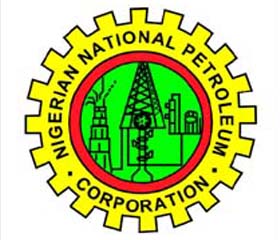Barely a month after it resumed production, the Warri Refining and Petrochemical Company Limited (WRPC) has been shut down again, a situation that may constitute a setback to the new administration’s current efforts at shoring up local supply of petroleum products.
The Nigerian National Petroleum Corporation (NNPC) said on Sunday that it took the action because the pipelines supplying crude oil to the Warri refinery had been compromised by vandals.
It, however, said the closure would be temporary as it hoped to reopen the refinery today.
The Group General Manager, Group Public Affairs Division of the NNPC, Ohi Alegbe said that the crude supply to the Warri refinery was done in batches, adding that it was expected that the facility should have at least 25 days sufficiency of crude, but this was not so.
Alegbe explained that although the Warri refinery would commence operations soon, its supply of crude through pipelines had been badly compromised.
He said, “Warri (refinery) is temporarily shut down and will resume in the new week. This is because the level of supply of crude there is very low. The refinery is supposed to be supplied crude endlessly and it should have at least 25 days sufficiency; so, if you supply crude in batches because the pipelines have been compromised, then your feed stock will not be regular.
“Therefore until you reach that supply level where you have at least 25 days sufficiency, your best bet is to shut down temporarily, otherwise you may damage the equipment. We supply crude by vessels because most of the pipelines have been compromised.”
The Warri refinery, which was inaugurated in 1978, is the first Nigerian government’s wholly-owned refinery built to process 100,000 barrels of crude oil per day but was later de-bottlenecked to process 125,000 barrels per day in 1987.
It was essentially built to add value to some of the refinery by-products such as propylene rich stock and decant oil.
Supply from local refineries had received a major boost last month when the Port Harcourt and Warri refineries began production following a successful re-streaming after a nine-month phased rehabilitation exercise conducted by in-house engineers and technicians.
The NNPC said on July 29 in a statement in Abuja that the refineries had commenced preliminary production of petroleum products after successful test-runs.
While the Port Harcourt Refinery Company was said to be ramping up its operation to about 60 per cent of its 210,000 barrels per day name plate capacity, the Warri refinery’s production was projected to hit 80 per cent of its installed 125,000bpd capacity.
On Thursday, the NNPC announced new measures aimed at reducing cost and strengthening operational efficiency across its refineries.
It stated that after proper evaluation and in line with the terms of contract for the delivery of crude oil to the nation’s refineries in Warri, Port Harcourt and Kaduna, its management had resolved to cancel the current contract of crude supply to refineries due to the exorbitant cost and inappropriate process of engagement.
The corporation explained that as a stop-gap measure, NIDAS Marine Limited, a subsidiary of the NNPC, had been engaged to provide crude delivery service on negotiated industry standard rate, pending the establishment of substantive contract.
Copyright Ships & Ports Ltd. Permission to use quotations from this article is granted subject to appropriate credit given to www.shipsandports.com.ng as the source.

